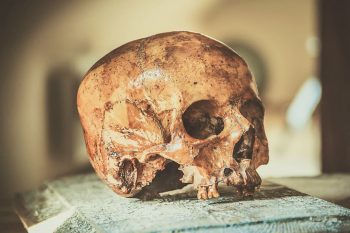What's alchemy all about?
Alchemy is a philosophical and protoscientific tradition that aimed to transform base metals into noble metals, to invent the Elixir of Life that grants eternal youth and life, and to discover a universal panacea, as well as the philosopher’s stone, a legendary substance that was supposed to enable the transmutation of common metals into gold.
Alchemy has been practiced in several cultures, including ancient Egyptian, Graeco-Roman, Islamic, and Chinese cultures, but it is most closely associated with medieval alchemists in Europe. The practice of alchemy is often described as a combination of chemistry, metallurgy, physics, medicine, astrology, mysticism, and art.
Alchemy has had a profound impact on several areas of study and has influenced modern-day chemistry and medicine. However, alchemy as a pursuit of transforming base metals into gold has been discredited by modern science, and the philosophical and spiritual aspects of alchemy continue to be studied by scholars in various fields.
Brief history of alchemy
The history of alchemy can be traced back to ancient civilisations of Egypt, Greece, and China, among many others. In ancient Egypt, alchemy was closely tied to religion and was practiced by priests who sought to create an elixir that would grant them eternal life.
In Greece, the philosopher Aristotle was influenced by alchemical ideas, and his works on the subject were later studied by Islamic alchemists. In China, alchemy was part of the larger tradition of Taoism and was concerned with the transformation of lead into gold as well as the quest for immortality.
Medieval alchemy in Europe developed as a response to the decline of the Roman Empire and the growth of the Christian Church. Alchemists in Europe during this time were both scientists and mystics who sought to understand the nature of the universe and the workings of the human body.
They conducted experiments and wrote treatises on their findings, often using symbols and allegories to encode their knowledge and keep it secret from those who were not initiated into the art.
The main goal and influences to modern society
The central goal of alchemy was the creation of the philosopher’s stone, a legendary substance that was believed to have the power to transmute base metals into gold and to grant eternal youth and life.
Although this goal was never achieved, alchemy did lead to the development of several important scientific and technological innovations, including the discovery of new chemical processes, the creation of new materials and alloys, and the development of new methods for distillation and purification.
Alchemy’s influence can still be seen in modern times, particularly in the fields of psychology and spirituality, where its symbolic and mystical ideas have been adopted and adapted to suit contemporary needs.
The practice of alchemy as a quest for transmuting metals into gold has been discredited by modern science, but its legacy lives on as a symbol of the enduring human desire to unlock the secrets of the universe and to understand the mysteries of life and death.
Who are the most well-known alchemists?
There are several well-known alchemists in history who made significant contributions to the field of alchemy and its related disciplines. Here are some of the most famous alchemists:
- Hermes Trismegistus – This figure is considered to be the patron saint of alchemy and is said to have been the author of the Hermetic Corpus, a collection of texts that are considered to be the foundation of alchemical thought.
- Zosimos of Panopolis – A Greek alchemist who lived in the 3rd century AD, Zosimos is known for his contributions to the development of alchemical theory and for his use of symbolism and allegory in his writings.
- Jabir ibn Hayyan (Geber) – A medieval Muslim alchemist who lived in the 8th century, Jabir is considered to be one of the most influential alchemists of all time. He wrote extensively on alchemical theory and practice and is credited with developing many of the techniques used in modern chemistry.
- Thomas Aquinas – A 13th-century Catholic priest and philosopher who was deeply influenced by the works of Aristotle and the Arabic alchemists, Thomas Aquinas wrote extensively on alchemical theory and its relationship to religion and philosophy.
- Roger Bacon – A 13th-century Franciscan friar who was a noted scientist and philosopher, Roger Bacon was an important figure in the development of alchemical theory and was one of the first to call for a scientific method based on experimentation and observation.
- Isaac Newton – The famous 17th-century mathematician and physicist was also an alchemist who devoted a significant amount of time and energy to the study of alchemy. His alchemical writings provide valuable insight into his thoughts on science, religion, and the nature of the universe.
These are some of the most well-known alchemists in history, but there are many others who have made important contributions to the field.

